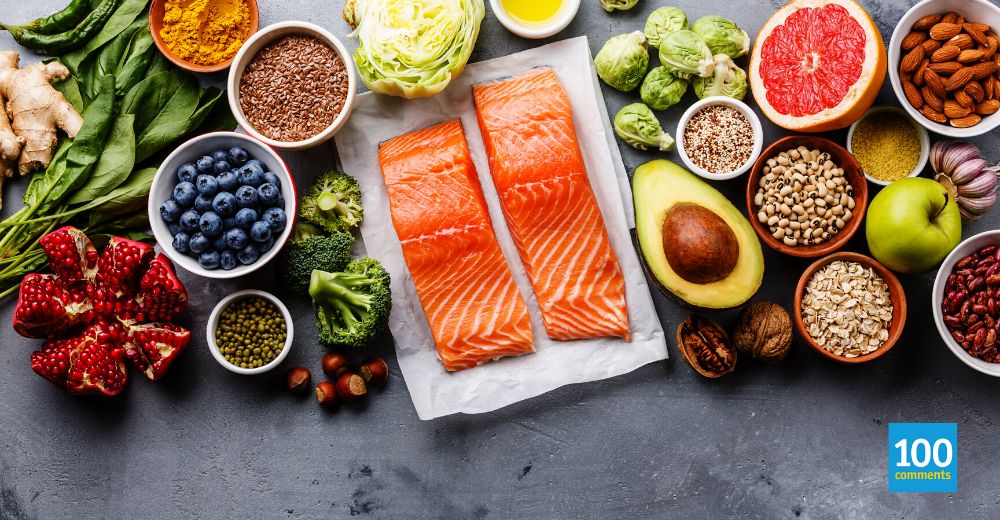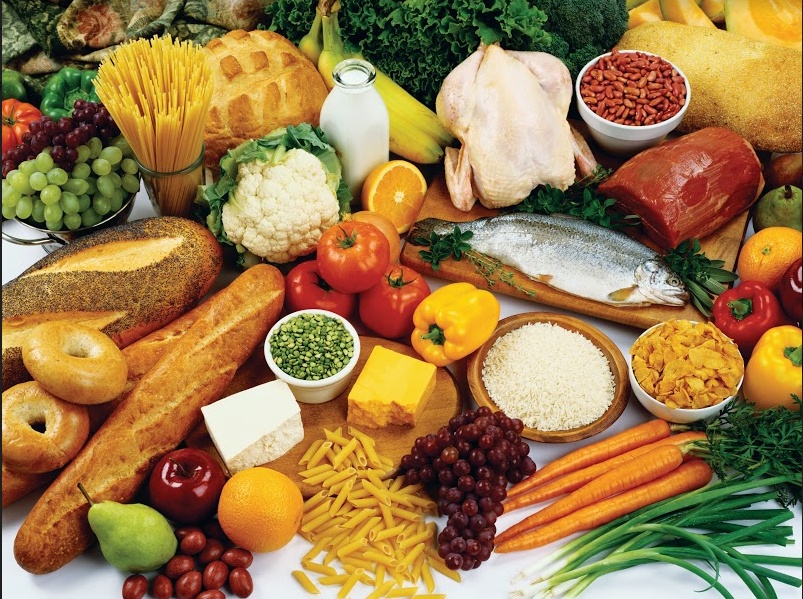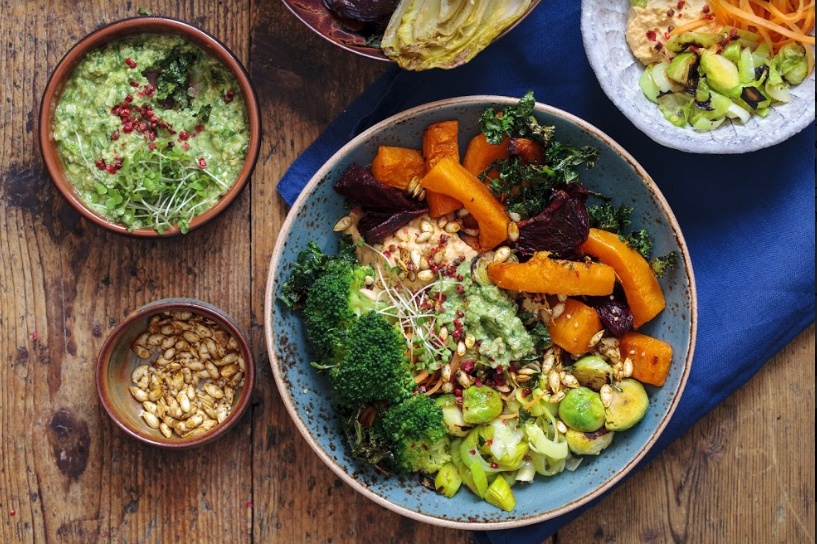By Susan Bowerman, Senior Director, Worldwide Nutrition Education and Training, Herbalife Nutrition
Whether you’re 20 years old or 70 years old, the basics of maintaining a healthy diet apply. Keep your proteins lean, focus on healthy carbohydrates (such as colourful fruits and veggies, and whole grains), and eat moderate amounts of healthy fats from foods such as nuts, avocado, olive oil and fatty fish. With each passing decade, there are some areas of your diet that may need some attention.
 There are subtle shifts in nutrient and calorie needs, and your eating and activity patterns are often influenced by the demands of your daily life. For parents in particular, as chasing after the young ones and keeping up with them can be exhausting, so consuming the right food is vital to keep your energy levels up and stay healthy. So, here is your decade-by-decade guide to healthy eating.
There are subtle shifts in nutrient and calorie needs, and your eating and activity patterns are often influenced by the demands of your daily life. For parents in particular, as chasing after the young ones and keeping up with them can be exhausting, so consuming the right food is vital to keep your energy levels up and stay healthy. So, here is your decade-by-decade guide to healthy eating.
How to Eat in Your 20s
For many, this is the decade when the transition is made from college to career. Eating (and drinking) habits in your early 20s may not be the best. As you transition into a regular work schedule, you might carry some of those habits with you. Working life often features more meals out, coffee breaks with colleagues and for some, starting on building a family as well – all of which can impact your diet.
- Establish healthy habits now. The eating habits you have now are likely to stay with you for the rest of your life. If your diet isn’t as good as it should be, now is the time to start establishing better habits. Eating well is one of the few habits that you get to practice several times a day, so aim to make the best choices at every meal and snack. If you’re a parent, remember that you set an example for your children to follow.
- Get plenty of calcium. When you’re in your 20s, you’re in peak bone-building years. Give your bones plenty of calcium from dairy products, leafy greens and fortified foods. Or, take a supplement if you can’t meet needs from dietary sources.
- Avoid crash dieting. At this age, it isn’t difficult to knock off a few pounds by going on a crash diet for a short period of time. But quick weight losses are often followed by weight regain, and yo-yo dieting isn’t a pattern you want to establish.
- Watch alcohol calories. Alcoholic beverages can be very costly, calorie-wise. If socializing involves alcohol, cut your calorie intake by alternating alcoholic beverages with calorie-free drinks. And watch those free appetizers at happy hour, too.
- Women, get your iron. Many young women don’t get enough much needed iron. Lean red meat, beans, leafy greens and fortified cereals can all help to meet needs, and supplements can help if it’s difficult to get all you need from your diet.
How to Eat in Your 30s
The decade between the ages of 30 and 40 can be crazy busy. For many, this is the decade where you’re juggling a career and parenthood, and taking care of yourself may not be high priority. Making time to eat balanced meals, get enough sleep and finding time to exercise can be especially challenging. And your weight might start to creep up.
- Eat regular meals and snacks to keep energy levels up. When life gets hectic, it’s too easy to skip meals or grab something on the run. But setting aside time for regular meals and snacks will help you maintain your physical and mental energy.
- Get organized and stock up. Being organized is key to being able to put meals together easily. Keep a file with a few go-to recipes that everyone likes, and that you can put together quickly. Make sure that you keep your freezer, refrigerator and pantry stocked with the ingredients you need.
- Set aside time for exercise. Finding time to stay active is challenging when you feel like you’re busy every minute, but it’s so important to your overall health. Getting the habit established now can help you keep your weight in check—and exercise is a stress-buster, too.
How to Eat in Your 40s
Life in your 40s may have a more manageable rhythm to it, but it’s also easy to get complacent with your diet and activity level. Even though you may have more time to exercise, you may not make it a priority.
- Watch your calories. As your metabolism naturally starts to slow down a bit in your 40s, you may find that you’re picking up a few extra pounds. So, keep tabs on your calories, and watch your intake of fats and refined carbohydrates.
- Maintain your muscle. Lean body mass naturally declines somewhat during this decade, but you can fight back with a one-two punch of resistance exercise and adequate protein.
- Re-establish your healthy eating habits. For those in their 40s with children, you may find that your meals tend to favour what the kids like, which may not be the best foods for you. Make a commitment to you (and your family) to re-establish good habits, such as including a fruit or vegetable at every meal, and control your fat and sugar intake.
How to Eat in Your 50s and Beyond
Keeping your weight in check is important at any age, but it can become more challenging in your 50s and beyond. As muscle mass naturally declines with age, it brings with it a drop in your daily calorie requirements. If you don’t adjust your intake accordingly, your weight can really creep up. For women, this is the decade that can bring the changes associated with menopause—including weight gain around the midsection, mood swings and poor sleep quality.
- Control stress eating. Life in your 50s can get stressful. Some in their early 50s are still part of the “sandwich generation”—taking care of teenagers and aging parents all at once. Rather than turning to food to reduce stress, stay active, get adequate rest and turn to family and friends for support.
- Eat nutrient-dense foods. Nutrient-dense foods are those that have the most nutrition for the fewest calories. Since your calorie needs are starting to decline, every calorie really counts, nutritionally speaking. So, choose wisely to get the most nutrition you can out of your calories.
- Get plenty of calcium. For women, calcium needs actually increase after menopause. Women over the age of 50 should aim for about 1200 mg per day, and men should be taking in about 1000 mg daily to support bone health. Along with calcium, it is also important to get adequate vitamin D, which helps the body absorb calcium. Fortified dairy products are good sources of both calcium and vitamin D. If needs cannot be met from the foods, dietary supplements can help fill in.


















